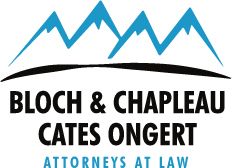There are several ways to organize and operate a business. The particular business structure that you choose is very important and will significantly impact your liability exposure and income taxes. Some business structures provide liability protection while others do not. The personal income you acquire and the available IRS deductions will also vary between the different business structures. Accordingly, it is very important that you consult with the attorneys at Bloch & Chapleau, LLC. We’ll help determine which structure is best suited for your type of business and individual goals.
Business Planning
An ideal business plan is one where you “own” nothing but control everything. A summary of the basic business structures is provided below.
- Limited Liability Companies
- Limited Liability Partnerships
- General Partnerships
- C-Corporations
- S-Corporations
- Sole Proprietorship
Limited Liability Company
The modern trend is a Limited Liability Company (LLC) due to its flexibility. An LLC is a company organized and existing under the Colorado Limited Liability Company Act. An LLC can only be created by filing Articles of Organization with state and will be governed by its Operating Agreement if one exists. It can be created by a single individual, other entity, several individuals, several entities or a combination thereof. The owners, which are called “members” of the LLC, have liability protection limited to their personal investment subject only to piercing the “corporate veil.” The LLC is run by a manager who may or may not be a member. The manager of an LLC may make decisions and take actions without the statutory formalities to which shareholders of a corporation are subject. Overall, an LLC can be an excellent choice for many different types of businesses, holding real estate and/or for estate planning combined with discounted valuations. Generally, a single-member LLC is disregarded for federal income tax purposes and treated like a partnership when there are two or more members. An LLC may also elect other types of tax treatment. The attorneys at Bloch & Chapleau have years of experience creating LLC’s and advising LLC clients.
Limited Liability Partnership
A Limited Liability Partnership (LLP) is formed only by filing the necessary paperwork and paying the filing fees at the state level. This particular business structure is owned by two or more individuals or other business entities where at least one of the partners has limited liability protection. Generally, the LLP will provide liability protection against the negligence of your partners but not your own negligence. The IRS will essentially treat the LLP the same as a general partnership for income tax purposes.
General Partnership
A General Partnership is a business that is formed when two or more individuals agree to operate a business for profit. A formal written partnership agreement is not required to form a General Partnership, however, a partnership agreement is highly recommended as operating without an agreement can be a bad idea. Again, there are no filing requirements at the state level to form a General Partnership. A General Partnership also does not provide liability protection for the general partners. As with the sole proprietorship, the profit is subject to your personal income tax rates regardless of whether you draw the money out or reinvest the money in the business.
C-Corporation
A C-Corporation is formed by filing Articles of Incorporation at the state level. The C -Corporation is owned by shareholders and requires more formalities for its operation than any other business structure. A C-Corporation provides excellent liability protection to its shareholders provided the corporate paperwork and formalities are diligently maintained. Shareholder liability is generally limited to their personal investment in the corporation. The C-Corporation pays its own taxes at the corporate level and is not a flow-through tax entity.
S-Corporation
An S-Corporation is not a separate entity but it is an entity that elects a special tax status granted by the IRS. The S-Corporation provides all the liability protection of a C-Corporation but does not pay corporate income taxes. The S -Corporation will file an informational return known as IRS form 1120-S. Each shareholder will receive a form K-1 which represents that shareholder’s share of the profit or loss.
Sole Proprietorship
A sole proprietorship is when an individual starts a business as himself or herself only operating the business. This type of “business entity” does not provide any personal liability protection. At tax time, the individual files a schedule C on his or her tax return, which is historically the most highly audited return. The individual’s profit is subject to the individual’s income tax rates, regardless of whether the individual draws the money out or reinvests the money in the business. There is no filing requirement at the state level to form a sole proprietorship unless the individual is operating under a fictitious or trade name. In that case, filing a “d/b/a (doing business as) with the state, county, city and/or municipality is required. It is not advisable to operate a business as a sole proprietorship.





